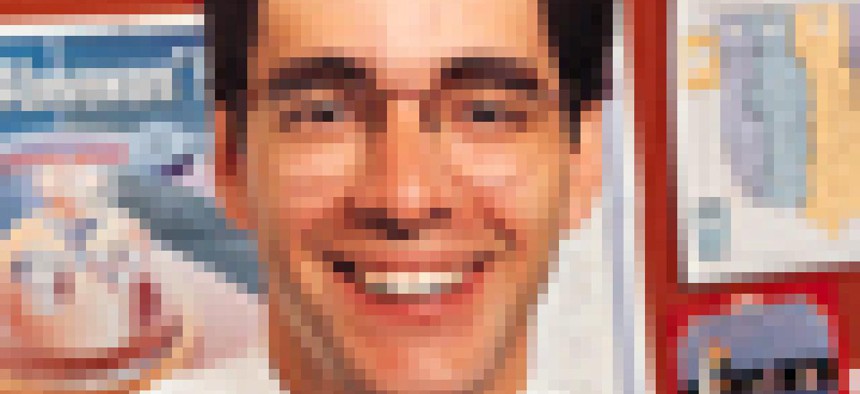MARKET SHARE

After spending a week at the Gartner Group IT conference in Florida with more than 8,000 attendees, I remain optimistic about the future of both the federal and commercial IT services market.
After spending a week at the Gartner Group IT conference in Florida with more than 8,000 attendees, I remain optimistic about the future of both the federal and commercial IT services market. While the year 2000 lockdown is real and widespread, it should be relatively short term. Both government and commercial work continues to be done on e-business efforts, including optimizing enterprise resource planning systems, implementing customer facing software, Web-enabling existing systems and ongoing maintenance work. Desktop activity also should pick up over the next year as Windows 2000 is released and the need for more robust network infrastructure and applications accelerates.Outsourcing in the federal market seems to be picking up, with desktop and application outsourcing contracts being issued both on specialized vehicles and existing indefinite delivery, indefinite quantity contracts. Conversations with federal IT workers suggest that labor constraints, not cost reductions, are the key driver in these smaller outsourcing initiatives, a problem that likely will increase significantly over the next two years as Windows 2000 rolls out. Profitability problems with earlier desktop seat management type contracts should lead to more reasonable pricing on this new wave of outsourcing. Federal integrators with commercial IT units (on average about 15 percent or so of the total revenues of the companies we track) probably are feeling the pain of the Y2K lockdown more in that realm than the federal business. With e-business-related IT services continuing to speed up, more traditional types of services such as large systems development and implementation should continue to suffer of the next few months. Most of the company executives I recently spoke with have a lockdown in effect that started around Oct. 1, that will end at the end of January or when the organization feels it is past its potential Y2K problems. On the other hand, many of these organizations are asking their IT service vendors not to allow their employees vacation during this period, suggesting perhaps a potential increase in business in what is usually a relatively slow holiday period. On Wall Street, investors still are very concerned about the impact of Y2K lockdown on the non-Web solution IT service firms. This impact has been reflected on the small and mid-tier players' stocks since mid-January.However, only in the past few weeks has the fear spread to the biggest players in the industry, following disappointing earnings from Ceridian and Unisys Corp. As a result, Electronic Data Systems Corp., Computer Sciences Corp. and Affiliated Computer Services have seen their shares decline. The rise in interest rates and resulting decline in the broader market have aggravated the situation, creating less incentive for buyers to step in front of the selling. I think this signals the low point in investor sentiment in the sector, and our view that the stocks in this group have reached a low as third quarter results are announced remains unchanged. Both Ceridian and Unisys seem to have been impacted by the Y2K lockdown, with Unisys also citing softness in its federal systems management and Windows NT business. Regardless of these short-term issues, investors with a time horizon beyond a few months can, in my opinion, take advantage of the strong, long-term demand trends and find significant values among the federal and commercial IT services firms. Bill Loomis is managing director of the Technology Research Group at Legg Mason Inc., Baltimore.He can be reached at wrloomis@leggmason.com.. This information is based on sources believed reliable but is not guaranteed as to completeness or accuracy and is not intended to be an offer to buy or sell any security.


Bill Loomis
NEXT STORY: Data Stream